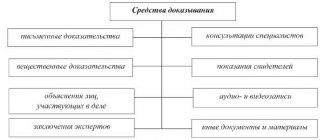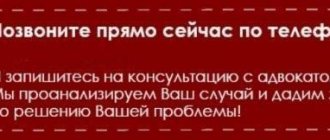Application for securing a claim - will help in the execution of the court decision. When filing a statement of claim, the following often happens: the defendant sees that claims have been made against him related to monetary and property obligations, he realizes or anticipates his loss in this case and begins to prepare for the fact that you will receive nothing as a result of the execution of the court decision . How exactly is this expressed: the defendant begins to get rid of his property, bank accounts, and other personal funds, which, by court decision, bailiffs can seize.
Situations like this lead to the fact that you are left with just documents: a court decision and a writ of execution, from which you can no longer get anything. The way out of this situation is to secure a statement of claim .
USEFUL: read the provision of a claim in arbitration court at the link.
How to file an application to the court to secure a claim?
If the petition is drawn up incorrectly or incorrectly, the court may refuse to satisfy it, and in this case you lose your advantage over the Defendant, since he will already know about your plans and will make every attempt to make the execution of the court decision difficult or impossible. Adhere to the following rules when drawing up an application for securing a civil claim:
- The legislation enshrines in Article 139 of the Code of Civil Procedure of the Russian Federation the provision that a petition for securing a claim can be filed in any state of the case, but it brings the greatest effect and benefit to you when directly filed with a statement of claim
- in the petition you will need to indicate the reasons and justification for interim measures in the case
- You will need to correctly decide on the choice of interim measures in the case, enshrined in Article 140 of the Code of Civil Procedure of the Russian Federation; in total, the legislator has provided many measures. In necessary cases, other measures, or several measures at once, can be taken to ensure the claims, which in turn gives more chances and guarantees that your rights and interests will be protected and the court decision will be executed
IMPORTANT: you will need to track the court's decision on your petition
What interim measures can be applied to my debtor?
In cases considered by courts of general jurisdiction, the following types of interim measures are provided (Article 140 of the Code of Civil Procedure of the Russian Federation):
- seizure of property belonging to the defendant and located in his or other persons’ possession (including the seizure of funds in the debtor’s bank account and amounts in the bank’s correspondent account received in the debtor’s name);
- prohibiting the defendant from performing certain actions;
- prohibiting other persons from performing certain actions related to the subject of the dispute, including transferring property to the defendant or fulfilling other obligations in relation to him;
- imposing on the defendant and other persons the obligation to perform certain actions related to the subject of the dispute about the violation of copyright and (or) related rights, except for the rights to photographic works and works obtained by methods similar to photography in information and telecommunication networks, including the network “ Internet";
- suspension of the sale of property in the event of a claim for the release of property from seizure (exclusion from the inventory);
- suspension of collection under a writ of execution contested by the debtor in court.
If necessary, the judge may take other measures to secure the claim not listed in this list, or use several measures simultaneously.
Consideration of an application for securing a claim
The application for securing measures is considered by the court within one day and without notifying the Defendant, which gives you a great advantage over the Defendant - he does not yet know about the requirements presented to him, and the path to retreat in the form of alienation of property has already been cut off for him.
If the request to secure the claim is granted, you will need to receive a writ of execution. After receiving the writ of execution, you must submit it (the writ of execution) to the bailiffs, so that they can take measures to ensure your claims;
If your request to secure a claim is denied, do not worry or be upset; you have the right to re-submit your request and the right to appeal the court’s ruling. It is best and most correct to run these two procedures (re-submitting a petition and the right to appeal a court ruling) in parallel, so your chances of enforcing the court decision will increase.
How to find the debtor's property for imposing interim measures?
To impose interim measures, you do not have to indicate specific property that is owned by your debtor. You can ask the court to seize any property of the debtor for the amount of your claims. In this case, the bailiffs themselves will go to the debtor and select the property to be seized.
Unfortunately, in practice, not all judges agree with this option of interim measures (despite the fact that it is mentioned in paragraph 40 of the resolution of the Plenum of the Supreme Court No. 50 of November 17, 2015). In the case of interim measures, it is important for the claimant (plaintiff) that they be taken as soon as possible. Therefore, if the judge does not agree to this option, and you know about the debtor’s specific property (car, apartment, dacha, accounts in specific banks), it is better to indicate information about it in your application and demand that it be seized.
If you do not know what your debtor owns, you can ask the court to send inquiries to the registration authorities, banks about the availability of property/bank accounts. Once the court receives a response to the request, you will be able to request in your application the seizure of specific property. This option is not recommended, since it does not allow promptly obtaining a determination on the imposition of interim measures. Perhaps you should talk to the judge in person and try to explain your position and the need for interim measures with this defendant.
Assistance from a lawyer in drawing up an application for securing a claim in Yekaterinburg
ATTENTION: we can help you not only in the procedure for imposing interim measures, but we will also help in the matter of changing interim measures, canceling interim measures, when you need to lift a certain ban or make the necessary payment if there is a ban on the current account.
If the issue is resolved positively:
- You receive guarantees of execution of the court decision, since the Defendant’s property will be seized;
- The execution of the court decision in your case will take much less time, since the Defendant’s property will already be found and recorded in the bailiff service;
- The determination to secure the claim is executed immediately, you are issued a writ of execution;
- Interim measures are imposed on the Defendant's property in proportion to the stated claims, which does not violate his rights; you act in a civilized and fair manner, trying to get yours back.
Remember, a writ of execution in hand does not guarantee that you will receive your money from the defendant. There is a way to effectively protect your rights and legitimate interests, but in order for the procedure to secure a claim to take place in a timely manner and in a manner consistent with the laws, it is necessary to take into account many nuances and subtleties of procedural actions, as well as aspects of enforcement proceedings.
Author of the article: © lawyer, managing partner of the law firm “Katsailidi and Partners” A.V. Katsaylidi
Share
Interim measures: when there is a chance to achieve them
According to Hogan Lovells Managing Partner Hogan Lovells Federal Rating. group Intellectual Property (Rights Protection and Litigation) group Intellectual Property (Consulting) group Intellectual Property (Registration) group International Litigation group TMT (telecommunications, media and technology) group Corporate Law/Mergers and Acquisitions (high market) group International Arbitration group Transport Law Group Pharmaceuticals and Healthcare Group Financial/Banking Law Natalia Gulyaeva, the use of interim measures is more a rarity than a rule. This is confirmed by research data from Pravo.ru. Thus, in 2022, the courts granted 38% of all applications for interim measures, in 2022 – 39%, and in 2022 – less than 37% (see “ASGM is least likely to obtain interim measures”).
Most citizens ask for a seizure, as well as a ban on the disposal of property (except for money). In second place in popularity is the prohibition of any registration actions, transactions and rights to the bodies of the Federal State Registration Service. Then comes the suspension of collection, execution of the decision, liquidation, prohibition of the actions of the bankruptcy trustee. The ban on using money and a bank account closes the top five popular demands.
When measures are most often imposed
As the lawyer of the St. Petersburg office of Pepelyaev Group says, Pepelyaev Group Federal rating. group Antimonopoly law (including disputes) group Arbitration proceedings (medium and small disputes - mid market) group Foreign trade/Customs law and currency regulation group Land law/Commercial real estate/Construction group Intellectual property (Registration) group Compliance group Tax consulting and disputes (Tax consulting) group Tax consulting and disputes (Tax disputes) group Labor and migration law (including disputes) group Digital economy group Intellectual property (Protection of rights and litigation) group Intellectual property (Consulting) group Natural resources/Energy group Pharmaceuticals and healthcare group Financial /Banking law group Environmental law group Bankruptcy (including disputes) (mid market) group Corporate law/Mergers and acquisitions (high market) group International arbitration group TMT (telecommunications, media and technology) Elena Rybalchenko, courts more often apply interim measures for the disposal of real estate . According to her, most often the courts accept security in cases of challenging a non-normative legal act, in disputes over property rights, as well as in cases of protection of exclusive rights. Partner Bryan Cave Leighton Paisner (Russia) LLP Bryan Cave Leighton Paisner (Russia) LLP Federal rating. group Antimonopoly law (including disputes) group Arbitration proceedings (medium and small disputes - mid market) group Foreign trade activities/Customs law and currency regulation group PPP/Infrastructure projects group Land law/Commercial real estate/Construction group Intellectual property (Protection of rights and litigation) group Intellectual property (Consulting) group International arbitration group Tax consulting and disputes (Tax disputes) TMT group (telecommunications, media and technology) group Transport law group Labor and migration law (including disputes) group Digital economy group Bankruptcy (including disputes) (high market) group Compliance group Corporate law/Mergers and acquisitions (high market) group International litigation group Tax consulting and disputes (Tax consulting) group Natural resources/Energy group Family and inheritance law group Criminal law group Pharmaceuticals and healthcare group Financial/Banking law group Private capital 2nd place By revenue 2nd place By revenue per lawyer (more than 30 lawyers) 5th place By number of lawyers Company profile Ivan Veselov believes that interim measures are most often taken in corporate disputes, disputes about challenging transactions, and vindication of property. And according to partner Eversheds Sutherland Eversheds Sutherland Federal rating. group Bankruptcy (including disputes) (mid market) group Foreign trade/Customs law and currency regulation group Intellectual property (Protection of rights and litigation) group Labor and migration law (including disputes) group Pharmaceuticals and healthcare group Environmental law group Corporate law/Mergers and takeovers (mid market) group Antitrust law (including disputes) group Land law/Commercial real estate/Construction group Tax consulting and disputes (Tax consulting) group Natural resources/Energy group TMT (telecommunications, media and technology) group Financial/Banking law group Arbitration legal proceedings (major disputes - high market) Oksana Peters company profile, these are typical disputes about the collection of receivables and administrative disputes about challenging acts of government agencies.
The imposition of interim measures largely depends on the requirements themselves. “Courts are most willing to satisfy applications whose requirements do not affect the material aspect. For example, about postponing a meeting of creditors on bankruptcy disputes. This occurs when the deadline for holding a meeting has arrived, but consideration of the application of a creditor entitled to participate in the first meeting of creditors of the bankrupt has been scheduled for a later date. Another example would be a situation where the applicant demands to maintain the status quo of the subject of the contested transaction. In such disputes, security does not significantly change the position of the parties and can maintain a balance of their interests,” says lawyer PB Olevinsky, Buyukyan and Partners Olevinsky, Buyukyan and Partners Federal Rating. group Bankruptcy (including disputes) (high market) 25th place by revenue per lawyer (less than 30 lawyers) 45th place by revenue Company profile Adelina Khudoyarova. Veselov believes that the most common adoption of interim measures is in the form of a ban on performing certain actions. For example, in the form of a ban from the Federal Tax Service to make changes to the Unified State Register of Legal Entities.
When measures are most often denied
Most often, courts refuse to seize money. This is due to the fact that the funds available to the debtor in the accounts at the time of filing the petition are not always the only source of satisfaction of claims. Rybalchenko reminds that the seizure of money can significantly complicate the life of both a legal entity and an individual: “If the demands are recognized as unfounded, then it turns out that the defendant suffered in vain. It is unlikely that he will be compensated for the losses caused by arrests and other restrictive measures.”
Often, under the guise of interim measures to protect the interests of persons participating in a legal dispute, a completely different motive may be hidden. For example, the desire to interfere with other market players.
Adelina Khudoyarova, lawyer PB Olevinsky, Buyukyan and partners Olevinsky, Buyukyan and partners Federal rating. Bankruptcy (including disputes) group (high market) 25th place by revenue per lawyer (less than 30 lawyers) 45th place by revenue Company profile
In most cases, courts do not indicate a clear reason for refusing to take interim measures, but simply limit themselves to the general wording of the law. According to Oleg Proshlyakov, lawyer at AB Pavlova and Partners Pavlova and Partners Federal Rating. group Family and inheritance law group Bankruptcy (including disputes) (mid market) group Private capital group Arbitration proceedings (major disputes - high market) Company profile, such excessive caution is caused by the reluctance to further worsen the position of the weak party in the process.
Court refusals to impose interim measures are sometimes based on the applicants’ incorrect application of the law. “For example, in one case regarding the protection of exclusive rights to a painting, the applicant showed excessive appetite. He asked the court to prohibit the defendant from holding an exhibition in which the disputed item was exhibited. The court rejected such a request. The subject of the dispute was only one specific painting, so it is logical that there is no reason or point in banning an entire exhibition,” Rybalchenko noted.
How to obtain interim measures?
In order to achieve the imposition of interim measures in court, it is necessary to prove the connection of a specific interim measure with the subject of the stated requirements, its proportionality, as well as significant difficulties in executing a judicial act in case of refusal. For example, the debtor has no other property to satisfy the requirements (No. A50-20086/2013), withdrawal of the debtor’s assets (No. A56-40284/2015), the beginning of a liquidation procedure or concealment of property. “A request for interim measures must be supported by real facts of the defendant’s past dishonest behavior, unstable financial condition in the present and a reasonable possibility of causing significant damage in the future,” Khudoyarova believes.
Courts always evaluate the consequences of applying interim measures. For example, the seizure of property, which cannot prohibit its use, will obviously entail less serious consequences than the blocking of a company's accounts, paralyzing its activities until the legal dispute is resolved.
Roman Zaitsev from Dentons Dentons Federal rating. group Antimonopoly law (including disputes) group Land law/Commercial real estate/Construction group Intellectual property (Protection of rights and litigation) group Intellectual property (Consulting) group Intellectual property (Registration) group Compliance group Corporate law/Mergers and acquisitions (high market) group International litigation group Tax consulting and disputes (Tax consulting) group Tax consulting and disputes (Tax disputes) group Natural resources/Energy group Capital markets group Sanctions law group Transport law group Labor and migration law (including disputes) group Pharmaceuticals and healthcare group Financial/Banking law group Digital economy group Arbitration proceedings (medium and small disputes - mid market) group Bankruptcy (including disputes) (high market) group Foreign trade activities/Customs law and currency regulation group PPP/Infrastructure projects group International arbitration group Dispute resolution in courts General jurisdiction TMT group (telecommunications, media and technology) Private capital group 2nd place Based on the number of lawyers, it recommends applying to regional courts, not neglecting repeated applications when receiving a first-priority refusal, and making maximum use of the institution of counter-collateral. But collateral can be economically burdensome for the firm and subject to legal uncertainty. In fact, counter-collateral is only possible in the form of depositing money with the court or providing a bank guarantee.
Interim measures must be proportionate to the stated requirement (Part 2 of Article 91 of the APC). When considering an application for interim measures, the court assesses the extent to which a specific interim measure is related to the subject of the claim, is proportionate to it, and how it will ensure the actual implementation of the goals of interim measures (clause 10 of the Resolution of the Plenum of the Supreme Arbitration Court of October 12, 2006 No. 55).
“But in real life, assessing the proportionality of the interim measure and the subject of the dispute may not always be reliable,” says Khudoyarova. For example, difficulties arise when assessing an applicant's intangible claims; when security is possible at the expense of the company’s only asset, the value of which clearly exceeds the value of the collateral. “In such cases, the court must take into account the interests of the defendant and determine the likely outcome of events,” says Khudoyarova.
- Alina Mikhailova
- Arbitration process
- Civil process






